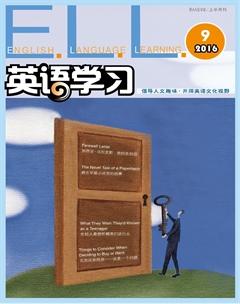The Truth About Icelandic Happiness 冰岛:满满的幸福哪里来?
木沐
几年前,我在隆冬时节去了冰岛。这样一个漂浮在北大西洋上的小小的北欧国家,冬夜漫漫,地势险峻,火山随时喷发,是如何成为全世界最幸福的国度之一的?我迷恋这里,我充满好奇。在我走后没多久,冰岛便陷入了严重的经济危机,银行垮台,失业率翻到八倍,老人甚至领不到自己的养老金。我以为冰岛人的幸福感就会这样消散了,然而我错了。
Several years back, I visited Iceland in the dead of winter1. I was researching a book on global happiness, and the small Nordic nation intrigued me.2 What was this country, adrift in the freezing North Atlantic, doing perched atop the worlds happiness rankings?3
In pursuit of answers, I buttonholed anyone willing to talk, dined on harkl (rotten shark), drank excessively, and, of course, took a dip in the Blue Lagoon, the otherworldly geothermal waters that have become synonymous with Icelandic bliss.4
Shortly after I left, Icelands largest banks went belly up and the nations economy teetered on the verge of collapse, collateral damage from the global financial meltdown of 2008.5 The unemployment rate spiked eightfold.6 Trust in institutions, like the banks and parliament, plummeted.7
I assumed that the nations happiness also nosedived8.
I was wrong.
“The economic crisis had a limited effect on happiness,” according to health scientist Dora Gudmundsdottir, author of an exhaustive9 study published in the Social Indicators Research journal. Not only did the nations overall happiness dip10 only slightly during the crisis, but 25% of Icelanders reported greater happiness. What was going on?
I emailed Karl Bl?ndal, a newspaper editor I had met in Reykjavik11. “A lot of individuals have been hit hard, pensioners12 lost their savings. But one thing about living in a small community is that everyone you know is within reach,” he explained. “Those who lose their jobs are not isolated, the risk of estrangement is not the same as it would be in bigger societies.”13
Here was an essential truth about Icelandic happiness: it is largely a collective enterprise.14
Iceland, even with its cosmopolitan capital of Reykjavik, resembles a small town in many ways.15 People neednt worry about falling into a black hole, Icelanders say, because there is no black hole to fall into you. Theres always someone to catch you. As one American immigrant16 to Iceland told me, if your car is stuck in the snow, someone will always, always stop. In fact, trust levels are so high that its not unusual to see six-year-olds walking to school alone in the winter darkness.
In a typically optimistic Icelandic statement, Bl?ndal even managed to see the opportunity embedded in17 the financial crisis. “Now we can wipe the slate clean18. Who knows—this might just as well be an opportunity to forge a better, more open society where power is more diffused and the old vested interests and economic blocks have been cleared out of the way.”19
This idea of an open, fair society seems to be key.
According to a recent United Nations report on world happiness, happiness is evenly distributed20 in Iceland. That is, most Icelanders are more or less equally happy, while in other nations—particularly those in the Middle East and Latin America—happiness levels vary tremendously21. This is important because “new research suggests that people are significantly happier living in societies where there is less inequality of happiness.” In other words, we can achieve only so much happiness if our neighbours are miserable.22 Icelanders seem to intuitively recognise this essential truth.23
Icelanders have also developed a fierce resilience honed over centuries of deprivation and isolation.24 Think winter darkness, volcanic eruptions and unforgiving terrain so otherworldly that NASA dispatched the Apollo astronauts here in 1965 to train for their upcoming moon walks.25
You see this sort of stubborn26 optimism at work every day in Iceland. You see it in the way people swim outdoors, year round, or how there is no stigma27 attached to abandoning a bad job or relationship. This resilience can also be found in the countrys rich literary culture, one that dates back to the old sagas—Viking tales of heroism in the face of adversity.28
Today, Iceland publishes more books per capita29 than any country in the world. Some psychologists believe that literature—and other cultural resources—provides a buffer during difficult times.30 Stories provide a vehicle for expressing grief,31 and grief expressed is grief reduced. They also provide a means for a culture to channel32 its creative energies.
And Icelanders certainly recognise the value of the written word, an attitude reflected in a common Icelandic saying: “Better to go barefoot than without books.”33
A happy thought, if ever there were one.
1. in the dead of winter: 在隆冬。
2. Nordic: 北欧国家的;intrigue: 引起……的兴趣。
3. adrift: 漂浮着的;perche: 把……置于高处;atop: 在顶端。
4. 为了寻求答案,我拉住想聊天的人不放,品尝了用腐烂的鲨鱼肉制作的佳肴,喝到酩酊大醉,当然还去蓝湖泡了个澡,那里超凡的地热温泉已经成为冰岛幸福的代名词。buttonhole: 强留(人)谈(或听);excessively: 过度地;take a dip: 洗澡,泡澡;Blue Lagoon: 冰岛蓝湖地热温泉,位于冰岛西南部,是世界顶级的疗养胜地;otherworldly: 超脱世俗的;geothermal water: 地热水;synonymous with: 与……同义;bliss: 无上幸福,极乐。
5. go belly up: 破产,倒闭;teeter on the verge of...: 濒临,处在(危险或灾难)的边缘;collapse: 失败,倒闭; collateral: 附带的;meltdown: 崩溃,垮台。
6. spike: 急速增长;eightfold: 八倍地。
7.parliament: 国会,议会; plummet: 暴跌,速降。
8. nosedive: 暴跌,骤降。
9. exhaustive: 详尽的,彻底的。
10. dip: 下降。
11. Reykjavik: 雷克雅未克,冰岛首都。
12. pensioner: 领养老金的人。
13. isolate: 使隔离,使孤立,下文isolation为其名词形式; estrangement: 疏远。
14. collective: 集体的,共同的; enterprise:(尤指艰巨而重大的)规划,事业。
15. cosmopolitan: 世界性的; resemble: 类似,像。
16. immigrant: 移民。
17. embed in: 把……嵌入。
18. wipe the slate clean: 把往事一笔勾销。
19. 谁知道呢——这也许还能作为一个机会,来创建一个更美好更开放的社会,使权力更好地下放,也使过去那种特权阶级和经济封锁不再当道。forge: 锻造,使形成;diffused: 普及的,分散的; vested interests: [复]既得利益者,特权阶级。
20. evenly distributed: 均匀分布的。
21. tremendously: 非常地,极其地。
22. only so much: 只有这么多(意指不多); miserable: 悲惨的,痛苦的。
23. intuitively: 直观地,直觉地;essential: 本质的,根本的。
24. fierce: 强烈的;resilience: 恢复力,复原力;hone: 磨练,训练;deprivation: 贫困,缺乏。
25. 试想漫长冬夜、火山喷发和险峻地势,这里环境如此奇险,使得美国国家航空航天局在1965年把阿波罗号的宇航员送来这里训练,以迎接他们即将来临的太空之旅。volcanic eruption: 火山喷发;terrain: 地形,地势;NASA: 美国国家航空航天局;dispatch: 派遣,发送;Apollo: 阿波罗号宇宙飞船;astronaut: 宇航员。
26. stubborn: 难以击败的,顽强的。
27. stigma: 羞耻,见不得人的感觉。
28. literary culture: 文学文化;saga: 长篇故事,英勇冒险故事;Viking:(公元8到11世纪的)北欧海盗;heroism: 英雄气概,英雄行为;adversity: 逆境,不幸。
29. per capita: 人均地。
30. psychologist: 心理学家;buffer: 缓冲物。
31. vehicle: 工具,手段;grief: 悲痛,悲伤。
32. channel: 传送,引导。
33. 光脚走路都比没有书强。barefoot: 光着脚的。

